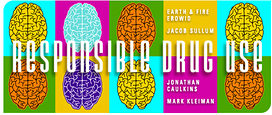A couple of points bear mentioning with respect to the exchange between Mark and Jacob.
First, increasing a tax, such as an alcohol tax, should not be thought of as happening in isolation. Unless the costs of administering the tax eat up all the revenue (not credible in this case since it is just increasing the rate of an existing tax), that increased revenue stream will either (1) fund a new government program, (2) reduce the deficit, or (3) allow reduction in another tax. The idea of increasing an alcohol tax and simultaneously reducing a tax on work (the income tax) so that the changes are revenue neutral might appeal to people who dislike raising the alcohol tax at least in part because they do not like increasing the tax burden generally.
Second, I’ll agree with Jacob that it can be useful to discuss changes that are not politically plausible at present, but I’d at least suggest discussants being clear whether they are trying to make practical suggestions for short- to medium-term changes vs. when they are discussing something more as a hypothetical. In that vein, I’d suggest not lumping together decriminalization of marijuana and across the board legalization of all drugs. Those two proposals have entirely different prospects. Indeed, quite a few U.S. states have already decriminalized marijuana, in varying ways. In this case, I think it is also important to make the distinction for substantive reasons. The stakes involved in decriminalizing marijuana vs. across the board legalization are entirely different, as is the degree of uncertainty surrounding the likely outcomes.

